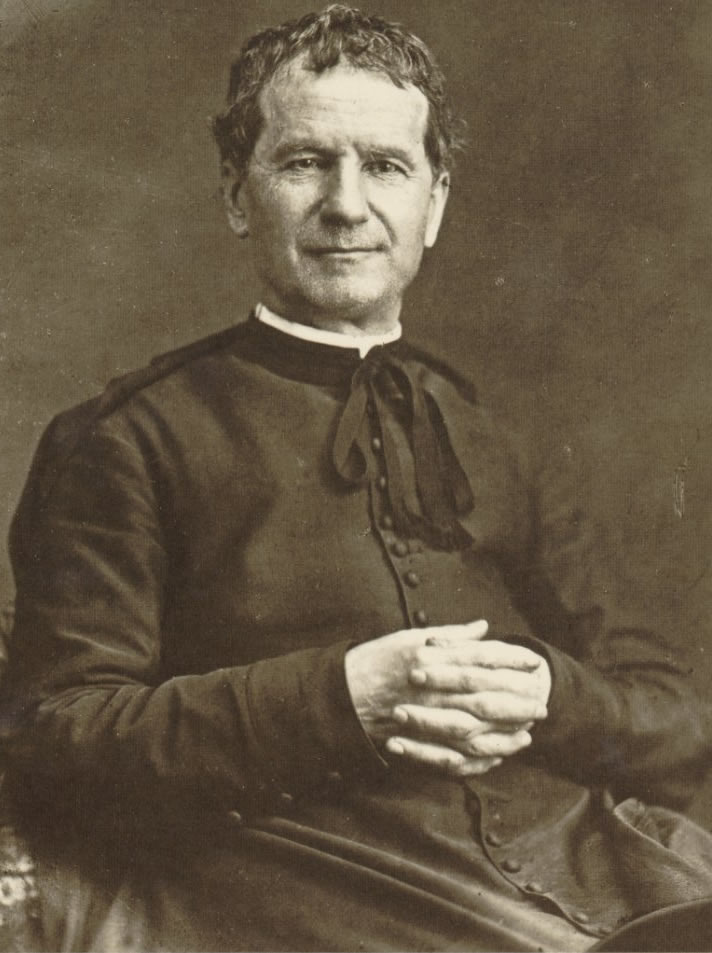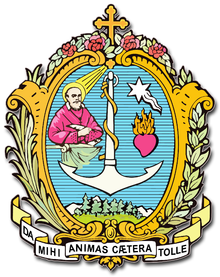Exploring the School
The ‘Gesù Bambino’ Nursery School is a parish institution steeped in a rich history dating back to the 1950s. From its inception, this school has been blessed by the presence of the Salesian Sisters, a religious order founded by Don Domenico Leonati from Padua. The Salesian Sisters draw inspiration from the Christian and educational principles and values upheld by Saint Francis de Sales.
The School's History and Tradition
Established in the 1950s by the Salesian Sisters and currently managed by a non-religious teaching staff, the institution proudly upholds an education rooted in Christian values, keeping this tradition alive.
Mission
Promoting children’s identity through inclusive relationships and fostering autonomy. Engaging families to create a serene and constructive environment. The teaching staff actively seeks ongoing training to address current educational challenges. The multicultural landscape demands the increasing adoption of inclusive practices.
P.T.O.F 2022-2025
Three-Year Educational Offer Plan
The school was officially recognized under decree no. 745 on January 21, 2002, in accordance with Law no. 62 of March 10, 2000, which establishes norms for educational equality and provisions for the right to education and schooling.
The School’s History and Tradition
La scuola dell’infanzia “Gesù Bambino” is a parochial school with roots dating back to the 1950s. Since its establishment, the school has benefitted from the presence of the Salesian Sisters, an order founded by Don Domenico Leonati of Padua, inspired by the Christian and educational values of Saint Francis de Sales. The presence of the Sisters has been enriching for both the school and the parish community. Even today, the school reflects their characteristic approach of hospitality and educational care, fostering relationships based on trust and dialogue, promoting responsibility, and active participation of parents in the school’s life.
Over recent years, the teaching staff is entirely lay, yet they fully embrace the spirit of the Salesian Sisters. Hence, the entire teaching staff and auxiliary personnel continue to follow the educational charisma transmitted by the religious Institute. This manifests in a welcoming style that creates relationships based on trust, promotes responsibility, and co-responsibility as forms of active participation by parents in the school’s life.
The “Gesù Bambino” kindergarten in Abano Terme is a place for personal encounter and growth. Educating by instructing essentially means:
- Preserving the cultural heritage from the past to ensure it is not lost and can be utilized.
- Preparing children for the future by introducing them to adult life, providing essential skills for active participation in society.
- Guiding each child’s personal development, supporting their quest for meaning and the arduous process of constructing their own personality.
The kindergarten defines itself as “Catholic” due to its reference to the genuine Christian conception of reality, with Christ at its center. It’s precisely the explicit and shared reference to the Christian vision by all members of the School Community that defines it as “Catholic.” Here, Gospel principles become educational norms, internal motivations, and ultimate goals.
The Parish Community of S. Lorenzo Martire views the School as a key means of human, cultural, and religious formation, considering the educational action of the kindergarten as a valuable collaboration in building a fairer and more supportive society. In this context, the school acts as a bridge between school, family, and the parish community, offering the educational service expected by the Christian community.
The school was officially recognized under decree no. 745 on January 21, 2002, in accordance with Law no. 62 of March 10, 2000, establishing norms for educational equality and provisions for the right to education and schooling. It defines the following:
Article 1
The national education system, while respecting what is provided in article 33, paragraph 2 of the Constitution, is composed of state schools and private and local authority-affiliated schools. The Republic identifies the expansion of educational offerings and the consequent broadening of the demand for education from childhood throughout life as a primary objective.
2. Parity schools are defined, for all intents and purposes of the current regulations, especially regarding the authorization to issue legally valid qualifications, as non-state educational institutions, including those of local authorities, which, starting from preschool, correspond to the general education system, are consistent with the educational needs of families, and are characterized by quality and effectiveness requirements as specified in paragraphs 4, 5, and 6.
Private parity schools are fully entitled to cultural orientation and pedagogical-didactic direction. Considering the school’s educational project, teaching is based on the principles of freedom established by the republican Constitution. Parity schools, as they provide a public service, accept anyone who subscribes to their educational project, including students and learners with disabilities. The educational project indicates any cultural and religious inspiration. However, extracurricular activities that presuppose or require adherence to a specific ideology or religious confession are not mandatory for students.
Parity is recognized for non-state schools that request it and, possessing the following requirements, expressly undertake to implement what is provided in paragraphs 2 and 3:
an educational project in harmony with the principles of the Constitution; an educational offering plan in compliance with current regulations and provisions; attestation of management ownership and publication of budgets;
availability of premises, furnishings, and teaching equipment suitable for the type of school and in compliance with current regulations;
establishment and functioning of collegial bodies based on democratic participation;
enrollment in school for all students whose parents request it, provided they possess a valid qualification for enrollment in the class they intend to attend;
application of current regulations on the integration of students with disabilities or in disadvantaged conditions;
organic constitution of complete courses: parity cannot be recognized for individual classes, except during the establishment of new complete courses, starting from the first grade;
teaching staff provided with an enabling qualification;
individual employment contracts for managerial and teaching staff that comply with national sectoral collective agreements.
Institutions mentioned in paragraphs 2 and 3 are subject to evaluation of processes and outcomes by the national evaluation system according to the standards established by current regulations. These institutions, up to a quarter of the total services, may use voluntary services of teaching staff provided they hold the necessary scientific and professional qualifications or resort to service contracts for personnel meeting the necessary requirements.
The nursery school, once called Infant Asylum, was established in Abano in 1912 on the initiative of the Parish of S. Lorenzo.
Initially, the school was entrusted to the Handmaids of the Sacred Heart of Jesus, and their work seemed providential to parents engaged in work activities.
Parish priest Monsignor Melchiorre Formaglio brought four nuns from the “Handmaids of Mary Reparatrix” in Rovigo to establish the nursery, which found a place in the old rectory where the Marconi cinema now stands. There is no record of the number of children attending during this period.
They remained until 1916 when the parish priest could no longer ensure their safety and sustenance due to the war.
In April 1918, the nuns from the order of St. Francis de Sales of Padua arrived to reopen the nursery, with around 80 children present.
Archives show that parish priest Don Angelo Loser (1922-1948) in 1941 initiated the construction of the new nursery inaugurated on December 21, 1942.
In 1963, Monsignor Tarcisio Mazzarotto (1948-1987) expanded the building by constructing the two porticoed wings and the new chapel, enriched with works by Mario Pinton.
In 2000, due to the population increase in Abano Terme, plans began for a significant expansion of the nursery school. In 2001, the new hall and the portico in front of the façade were inaugurated, and the courtyard and entrances were arranged. Now, in addition to the work of the nuns, there are certified nursery school teachers. Since the 1990s, teachers must possess a high school diploma in psycho-pedagogy, and since 2002, to be qualified for teaching, a degree in Primary Education Sciences is required.
From 2006 to 2011, the expansion of the kitchen and all works to ensure the safety of the systems were designed and completed to obtain definitive approval from the Region.
Congregation’s Coat of Arms

A follower of the spirituality and philosophy of Francis de Sales, Bosco was an ardent devotee of the Virgin Mary under the title Mary Help of Christians. He later dedicated his works to de Sales when he founded the Salesians of Don Bosco, based in Turin.

Francesco di Sales (French: François de Sales; Thorens-Glières, August 21, 1567 – Lyon, December 28, 1622) was a French Catholic bishop.
Francesco was the eldest son of the Lord of Boisy, a nobleman from an ancient Savoyard family, and received a refined education. His father, desiring a legal career for him, sent him to the University of Padua, where Francesco graduated but decided to become a priest. Ordained on December 18, 1593, he was sent to the region of Chiablese, dominated by Calvinism, and devoted himself mainly to preaching, favoring the dialogue method: he invented the so-called ‘manifestos,’ which allowed reaching even the most distant faithful.
He was proclaimed a saint in 1665 by Pope Alexander VII and is one of the Doctors of the Church.
Mission
The school aims to be a place of listening, attention, and care for every child, fostering the development of their identity through relationships with peers, constantly promoting greater autonomy and self-confidence. To achieve this, the teaching staff places particular emphasis on valuing school time, ensuring equal educational opportunities that facilitate practices of school inclusion and consider the educational needs of each child.
Parents of the children express the need to be supported in their educational role, sometimes leading to delegating their own educational responsibilities. However, the teaching staff, aiming to involve families in the educational process, acts as a facilitator in adopting shared educational practices and strategies. Every family is welcomed by the school, acknowledging both their strengths and weaknesses, creating a serene and constructive atmosphere that also nurtures positive educational relationships with the children.
The teaching staff feels the need for ongoing training and support to tackle the complexities posed by today’s educational challenges. Discussions among colleagues and productive collaboration are key strengths in being attentive professionals to the needs of children and families.
The area is characterized by multiculturalism, prompting the entire school staff to engage in shared training to generalize inclusive practices. Simultaneously, the school pays particular attention to processes related to developing citizenship skills and facilitating continuity in educational practices with subsequent school systems.

Photo Album
Outdoor spaces
Our outdoor spaces are a place of wonder and adventure for our little ones.
School laboratories
Our institute promotes a unique approach to learning through play and discovery labs.
Internal school classrooms
Discover where your children will spend their time and how we create a stimulating environment for learning through exploration.
Extracurricular Activities
We involve the community in school life, offering valuable opportunities for children to learn and discover the world in different and stimulating ways.
A click to join us at the Institute.
Some Reviews about the School
Scopri ulteriori dettagli e informazioni direttamente dalla fonte originale. Un click sul testo della Recensione per collegarti al sito originale.

Come and Visit Us
If you wish to get to know us better and see our work in action, don’t hesitate to get in touch with us. We would be happy to arrange a visit for you.

